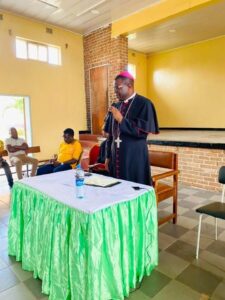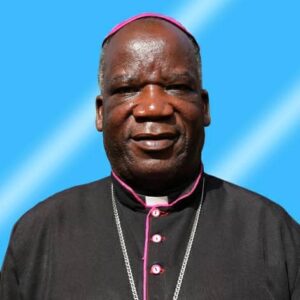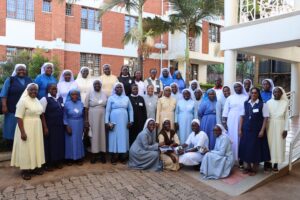KENYA: Franciscan Families Challenged to Prioritize Sustainable ways of Rebuilding the Church

Sr. Consolata A. Aloo, FSSA
Sr. Jecinter Antoinette Okoth, FSSA
At a virtual session that brought together various religious orders who follow the Spirituality of St. Francis of Assisi, a man who was dedicated to Christian charity and lived a life of austere poverty, Franciscans have been asked to observe ways that see into the continuity of the Church for the future generation.
Reflecting on the call of St. Francis who heard the voice of the Lord at San Damiano to rebuild the Church of God that was falling, Sr. Consolata Aloo a member of the Franciscan Sisters of St. Anna (FSSA) who was the facilitator of the Saturday, September 12, session said, “St. Francis was rebuilding the Church on a foundation that already existed and this was for the Church to continue in her service to the people.”
According to the nun, rebuilding of the Church was a way on how St. Francis was to realize a sustainable way of the Church’s continuity for the future generations.
Addressing close to 50 Religious men and women and some lay Franciscans who participated in the session, Sr. Aloo noted that sustainability and self-reliance of a Religious Institute calls for “Remaining true to the evangelical commitment of religious life in the competitive society.”
Besides, Sr. Aloo who is the Executive Secretary to the Catholic Scholarship Program for Kenya (CSPK) said, “Sustainability is not just about money, but the willingness to change and meet the needs of time,” and at the same time “to provide and retain what we have and remain focused to our call and commitment.”
In this case, to remain sustainable in a Religious Institute, there is need to “Identify and align the spiritual, economic and social resources of the Institute which includes prayer, apostolic and communal life,” and “to emphasize our belief in the sacredness of each individual and in the dignity of each person.”
According to the Kenyan nun, to achieve sustainability in the religious context, there is need to “Tap best talents of each person, be open to change, make sound decisions, engage members of the Institute, being accountable and having good governance which involve participatory leadership.”


